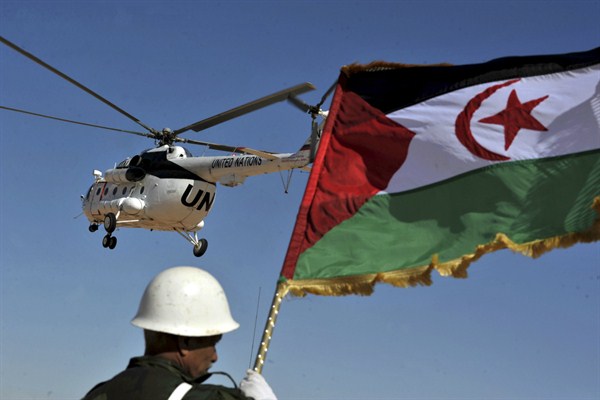The conflict over Western Sahara has lasted well over 40 years—25 under the oversight of the United Nations Security Council since it brokered a cease-fire in 1991—but it suffered the latest and perhaps worst of its many setbacks earlier this month, thanks to none other than U.N. Secretary-General Ban Ki-moon. Ban caused an uproar in Morocco by calling its presence in Western Sahara an “occupation,” while he was visiting a refugee camp in Tindouf, Algeria, near the border with the disputed territory. Ban’s comments came during a larger visit to North Africa that did not include Morocco, the key player in Western Sahara.
Ban decided to visit North Africa earlier this month in an effort to resolve the Western Sahara conflict before the end of his term later this year. He made the trip despite Morocco’s claims—genuine or otherwise—that it could not receive him due to the absence of King Mohammed VI, who was going to be traveling out of the country. Morocco upped the ante by denying landing clearance to the secretary-general’s plane in Western Sahara, in effect vetoing his trip to the territory.
Ban still met with the conflict’s other party, the Polisario Front, a liberation movement representing the Sahrawi people, in Bir Lahlou, the no man’s land between a security berm built by Morocco and the internationally recognized border of Western Sahara. The Polisario leadership claims Bir Lahlou as the capital of its government in exile, the Saharawi Arab Democratic Republic (SADR), which is not recognized by the United Nations. The ostensible reason for Ban going there was to visit a U.N. peacekeeping base. The Polisario Front is backed by Algeria.

